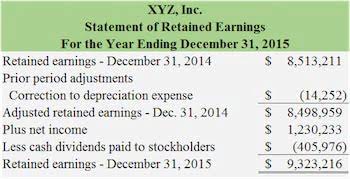By familiarizing themselves with different tax reporting requirements, they can ensure compliance and avoid potential issues down the line. Developing an organized system for managing receipts, invoices, and other financial documents helps maintain clarity in tracking income and expenses accurately. This practice aids in preparing financial statements efficiently and facilitates tax filings come tax season. To address this risk, it’s crucial for sole proprietors to maintain robust financial management practices and establish emergency funds for unforeseen circumstances. It’s essential for sole proprietors to understand how to correct errors in financial statements or tax returns. Knowing the procedures for filing amended tax returns is crucial if mistakes occur.
Tax Considerations
Seeking professional help when handling complex or significant mistakes can prevent further issues and ensure compliance with accounting regulations. Evaluating which structure is more suitable depends on factors like risk tolerance and growth aspirations. For instance, if someone values protection against personal liability more sole trader accounting than operational ease, an LLC might be preferable. Sole proprietors have unique opportunities for tax savings through various strategies tailored to their business structure.
Understanding Schedule C
Automating the importation of transactions into your accounting system saves time and ensures accurate financial records. By syncing your bank account with accounting software, you maintain up-to-date financial information without manual data entry errors. Streamlining payment tracking processes enhances cash flow management by ensuring that all due payments are accounted for in a timely manner.
How can sole proprietors set up bookkeeping effectively?
- Developing an organized system for managing receipts, invoices, and other financial documents helps maintain clarity in tracking income and expenses accurately.
- Tax implications also differ based on which method you select for your sole proprietorship.
- To address this risk, it’s crucial for sole proprietors to maintain robust financial management practices and establish emergency funds for unforeseen circumstances.
- For instance, if someone values protection against personal liability more than operational ease, an LLC might be preferable.
- These updates also allow identifying areas for cost reduction or revenue growth within the business.
- Exploring available credits such as the Qualified Business Income Deduction (QBI) can further optimize tax savings for sole props.
One common challenge faced by proprietors is managing cash flow fluctuations effectively. Since personal assets are typically tied to the business, any financial instability in the company could impact personal finances directly. Deductible expenses like office supplies, utilities, or advertising costs can be subtracted from the business’s revenue to calculate the net profit. However, it’s essential to avoid common mistakes on Schedule C that could trigger an audit. By keeping track of profit and loss updates, sole proprietors gain insights into their financial standing.
Tax Reporting
- It helps identify discrepancies or errors promptly, allowing for timely corrections.
- Since personal assets are typically tied to the business, any financial instability in the company could impact personal finances directly.
- Sole proprietors have full control over their businesses and are personally responsible for the debts and liabilities.
- Streamlining payment tracking processes enhances cash flow management by ensuring that all due payments are accounted for in a timely manner.
- In conclusion, mastering bookkeeping is crucial for sole proprietors to maintain financial health and compliance.
It helps identify discrepancies or errors promptly, allowing for timely corrections. This practice ensures that financial statements provide an accurate snapshot of the business’s Certified Bookkeeper financial health. Exploring options to sync your business bank account with accounting software can streamline sole proprietor accounting tasks significantly. Familiarizing oneself with Schedule C is essential for accurate tax reporting as a sole proprietor. This tax form allows sole proprietors to report income and deductions related to their businesses accurately. While an LLC separates personal assets from business liabilities, a sole proprietorship does not provide this distinction.
Bank Account Syncing
Navigating sole proprietor accounting, including reliable bookkeeping and managing financial transactions, can be daunting for small business owners. Understanding financial management, tax obligations, accounting systems, and record-keeping is crucial for success. Pros of a sole proprietorship include simplicity in setup, full control over decision-making, easy tax filing process. Cons may involve unlimited personal liability for debts, potential difficulty in raising capital compared to other business structures like LLCs or corporations. Keeping personal and business finances separate is crucial to avoid confusion and potential issues down the line. Mixing funds can complicate tax reporting and obscure the true financial position of the business, making it challenging to assess profitability accurately.
Avoiding Errors
Sole proprietors often use cash basis for simplicity, but accrual can provide a more accurate financial picture. Understanding the timing of income and expenses is crucial in deciding between cash and accrual methods. Registering your sole proprietorship with relevant authorities ensures compliance with regulations.
Good sole proprietor accounting involves understanding tax reporting requirements. Sole proprietors must file federal, state, and local tax returns timely to avoid penalties. As a sole proprietor, it’s essential Accounting Periods and Methods to be knowledgeable about correcting errors in financial statements or tax returns. Understanding the process of filing amended tax returns is crucial if inaccuracies are discovered after submission. Implementing internal controls is crucial for sole proprietor accounting to minimize mistakes.
Pros and Cons of Sole Proprietorship
Timely identification of overdue payments allows you to address any issues affecting your cash flow before they escalate. Tax implications also differ based on which method you select for your sole proprietorship. By leveraging this flexibility, sole proprietors can stay ahead in fast-paced industries where responsiveness is key.





